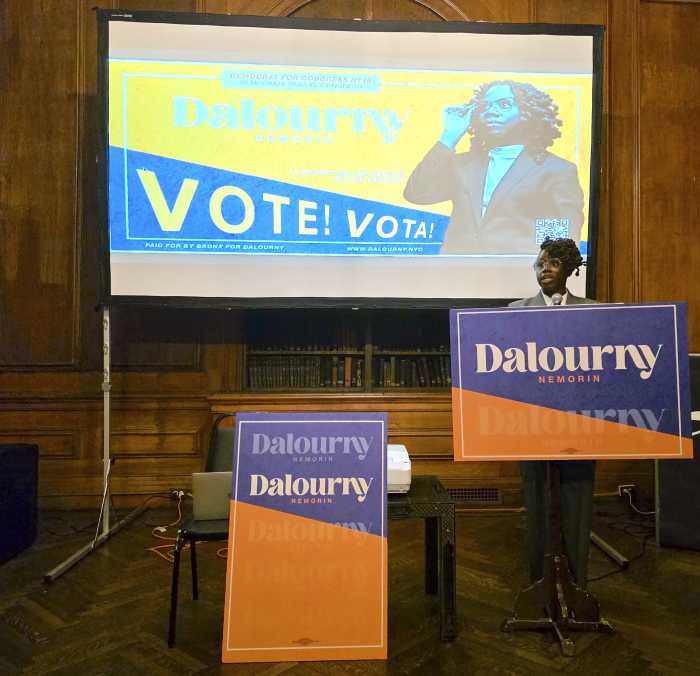In letters to the editor from Democratic State Senator Tom Duane and two leading gay political clubs, Brooklyn’s Lambda Independent Democrats and the Out People of Color Political Action Club, the political doublespeak of Republican Mayor Michael Bloomberg’s posture on gay marriage rights has once again been highlighted. The mayor came out in favor of same-sex marriage equality the same day he announced an appeal of a successful gay marriage lawsuit ruling in Manhattan in February. Bloomberg has argued that he is interested in clarifying the question once and for all at the state’s highest court before issuing any marriage licenses—and he went so far last week as to tell Gay City News that he hopes his side loses at the Court of Appeals. Yet, he does not offer any convincing reason why the city continues to argue against the constitutional right to gay marriage—rather than simply asking that the high court sort the issue out.
We wholeheartedly agree with the positions that Duane and the two political clubs staked out, and have said so repeatedly all year on this page.
And yet…
We had hoped that the initial response coming from the gay community and Democrats might have been more welcoming to the plan that the mayor’s in-house counsel, Anthony Crowell, discussed at this newspaper’s meeting with the mayor—convening a “legislative meeting” with LGBT leaders to plan strategies for the coming year. It might be easy to dismiss the Bloomberg idea as more of a piece with his general wish to have it both ways on marriage. If that is the case, gay leaders and Democrats should call his bluff.
But they can only do so if they attend the meeting and present a compelling plan of action. Duane told Gay City News this week that he plans hearings on a marriage bill in Albany in 2006. The mayor last week pledged to “testify” at legislative hearings on gay marriage. The two men should be speaking about this matter.
Let us be blunt: The end game in late 2002 surrounding passage of the Sexual Orientation Non Discrimination Act, or SONDA, was quite nearly hobbled—in principle over a disagreement about whether it was possible to incorporate additional language also barring bias based on gender identity and expression (an amendment that was not effected.) But behind the lofty rhetoric, there was considerable infighting among people who largely agreed on the bigger picture goals, and were perhaps motivated as much by ego as by disagreement over any real issue.
Proponents of same-sex marriage must come together, and we are foolish if we don’t push the mayor as hard as possible to be part of the team.
The cascading revelations about unauthorized wiretaps and domestic surveillance by the Bush administration recall the dark, final days of the Nixon administration and the checkered, 48-year tenure of J. Edgar Hoover at the FBI. National security imperatives do not justify the incursions on our laws and on the tradition of free expression on which this nation is built. The Foreign Intelligence Security Act of 1978 provides the president with ample room to obtain a court order for justified eavesdropping. The fact that our enemies today are not nation-states but rather rogue organizations does not change the logic of such checks and balances one whit.
Reports that first surfaced on NBC over the weekend about FBI and military authorities spying on domestic groups—from PETA to the Catholic Workers to gay students opposing the Pentagon’s anti-gay Don’t Ask, Don’t Tell policy—present a wholly unsupportable scenario, reminiscent of Richard Nixon’s notorious Enemies List. It may seem laughable, but as NYU Professor Sylvia Law notes elsewhere in this issue, such draconian measures will over time have a chilling effect that will stifle protest against the Bush administration. And that is precisely the aim of the surveillance.
Don’t Ask, Don’t Tell already wastes enough of our resources. Spying on those who protest the policy is inexcusable.
gaycitynews.com













